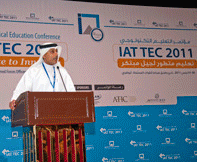In order to thrive in a knowledge-based 21st century, students
need digital age proficiencies. Thanks to modern-day technology and the
Internet, the globe has been dwarfed to a small village that students can
explore at the tip of their fingers.
Technology has changed the way students learn; they are
digital-native citizens. Teachers should also understand how to
adapt their teaching methodologies in ways that capture
interests of students in this digital era and at the same time
prepare them well in content material.
Students spend much of their time in schools inside classrooms.
It would be unrealistic to keep students for several hours
confined to the traditional (and sometimes outdated) teaching
approaches. It is the utmost role of educators to ensure that
proper learning has taken place. This cannot happen without
appropriate and suitable formation of technology-encompassed
instructions and environment.
Classroom without Borders is a generic term that is not restricted
to technology per se. It can be collective sources of many ideas.
Different educators perceive Classroom without Borders from
different perspectives. Some see it as open mindedness and no
limitations of learning. Others see it as thinking outside the box.
Whereas other educators believe it is concerned merely with
technology and how it can happen anytime, anywhere.
The Institute of Applied Technology (IAT), as one of the leading
Career Technical Education (CTE) stakeholders in the UAE, is
organizing the IAT Technological Education Conference. IAT is
inviting you, the educator, to share your ideas regarding
Classroom without Borders. This conference aspires to cultivate,
nurture and promote best educational practices that help in
improving the learning process in a knowledge-based society.





